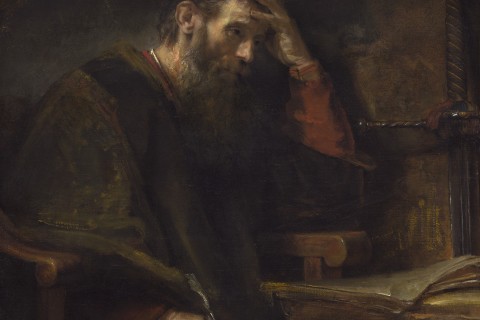Cardinals begin conclave to elect the next pope
c. 2013 Religion News Service
VATICAN CITY (RNS) The doors of the Sistine Chapel closed behind the cardinals on Tuesday (March 12), marking the official start of the conclave that will elect the successor to Pope Benedict XVI.
The 115 cardinal-electors walked in procession into the Sistine Chapel, singing hymns and invoking the Holy Spirit, before filing under Michelangelo's "Last Judgment" and taking a solemn oath of secrecy on everything that will happen during the conclave.
At the end of the oath-taking ceremony, the master of papal ceremonies, the Rev. Guido Marini, ordered the "extra omnes" (Latin for "everybody out").
Cardinals will be sequestered inside a Vatican residence until a candidate receives the two-thirds majority needed for election to the papacy.
According to church law, the cardinals will hear a meditation on their "grave duty" and on the "need to act with right intention for the good of the Universal Church," before possibly holding the first vote for the new pope. The meditation will be delivered by retired Maltese Cardinal Prosper Grech.
Earlier on Tuesday, at a solemn Mass in St. Peter's Basilica, the Catholic Church's most senior cleric told the 115 cardinals to work together for the "unity of the church."
The "Pro Eligendo Romano Pontifice" Mass ("For the election of the Roman Pontiff" in Latin) is generally considered to set the tone for the conclave that immediately follows.
In 2005, then-Cardinal Joseph Ratzinger's strong condemnation of modern "ideological currents" -- "from Marxism to liberalism ... from collectivism to radical individualism; from atheism to a vague religious mysticism" -- at the Mass paved the way for his election to take the helm of the church after the 27-year reign of John Paul II.
This time, though, the dean of the College of Cardinals, Angelo Sodano, carefully steered away from any direct remarks on the challenges that the new pope will have to face.
Sodano is over 80 and thus, unlike Ratzinger in 2005, will not be part of the conclave.
In his homily, the former secretary of state under John Paul II closely followed the biblical texts. "Each of us must work to build up the unity of the church," he said, commenting on a passage by St. Paul, "each of us is therefore called to cooperate with the Successor of Peter, the visible foundation of such an ecclesial unity."
Reports in the Italian press described the cardinals as deeply divided following a series of daily meetings in the week leading up to Tuesday's conclave.
According to La Stampa and La Repubblica newspapers, during the cardinal's last meeting on Monday, there was a heated exchange between Cardinal Tarcisio Bertone, Benedict's No. 2 official as secretary of state, and Brazilian Cardinal Joao Braz de Aviz over the running of the scandal-scarred Vatican Bank.
Sodano told cardinals to pray that the future pontiff continues "promoting justice and peace" as his predecessors did. He also thanked the "beloved and venerable" Benedict XVI for his "brilliant pontificate."





